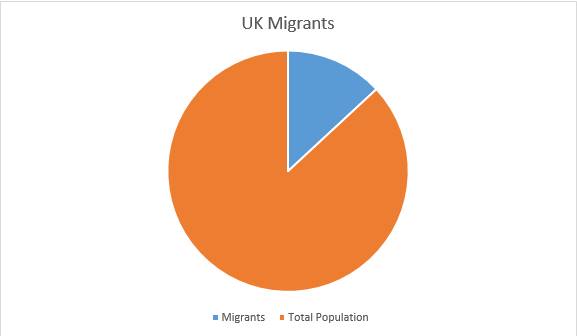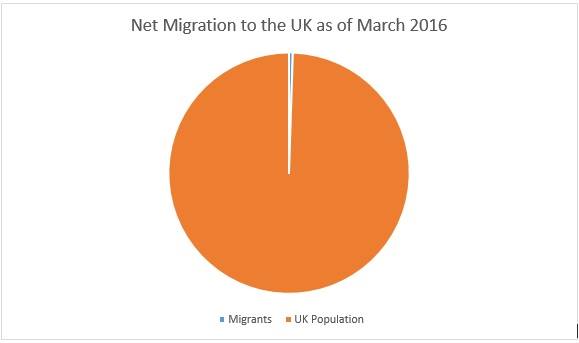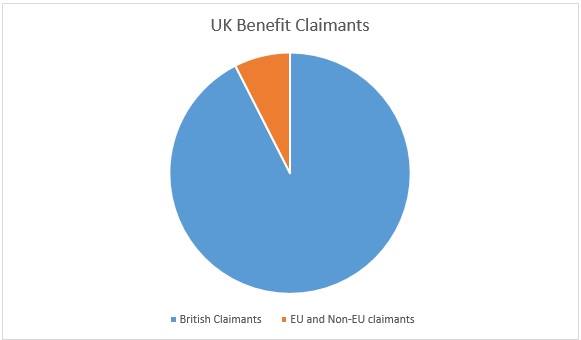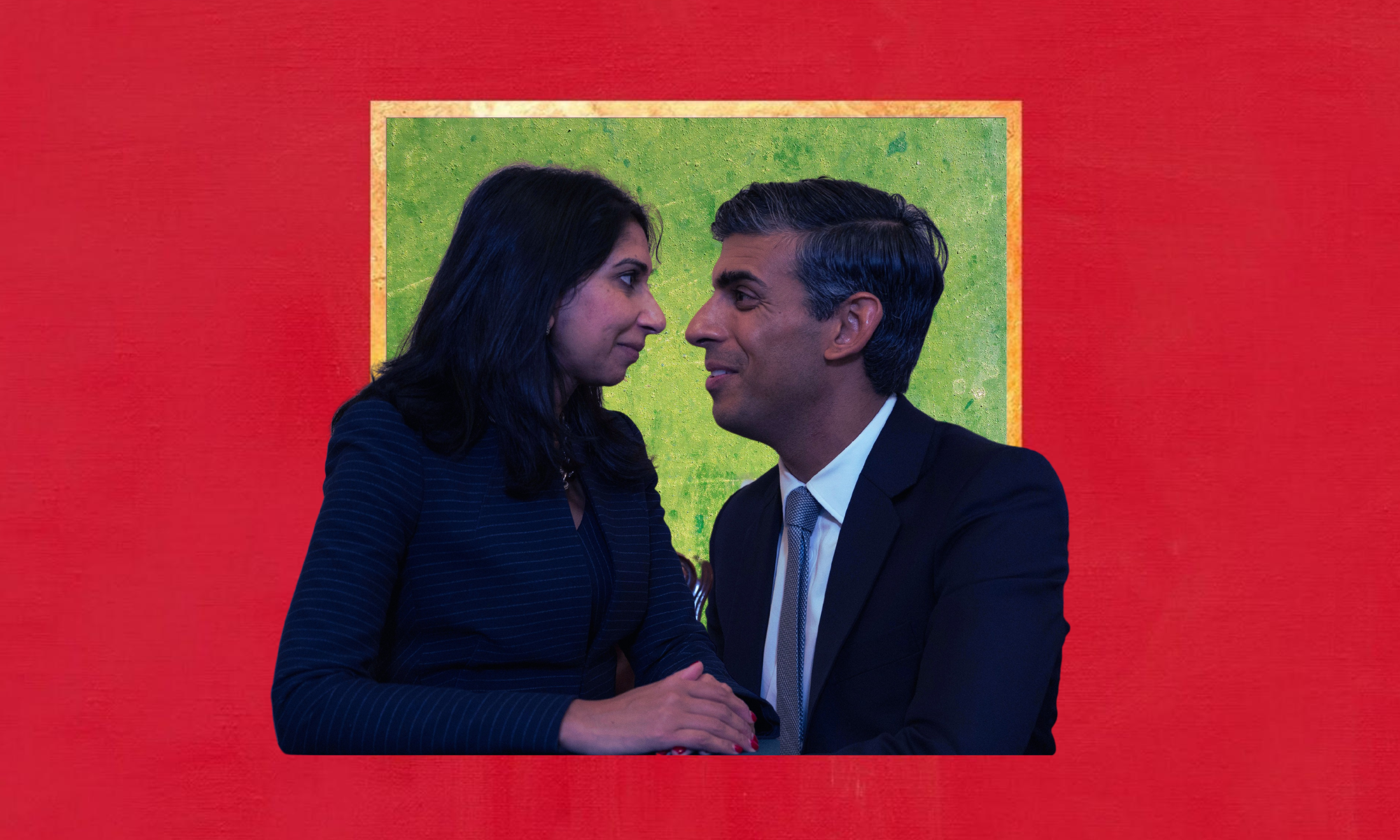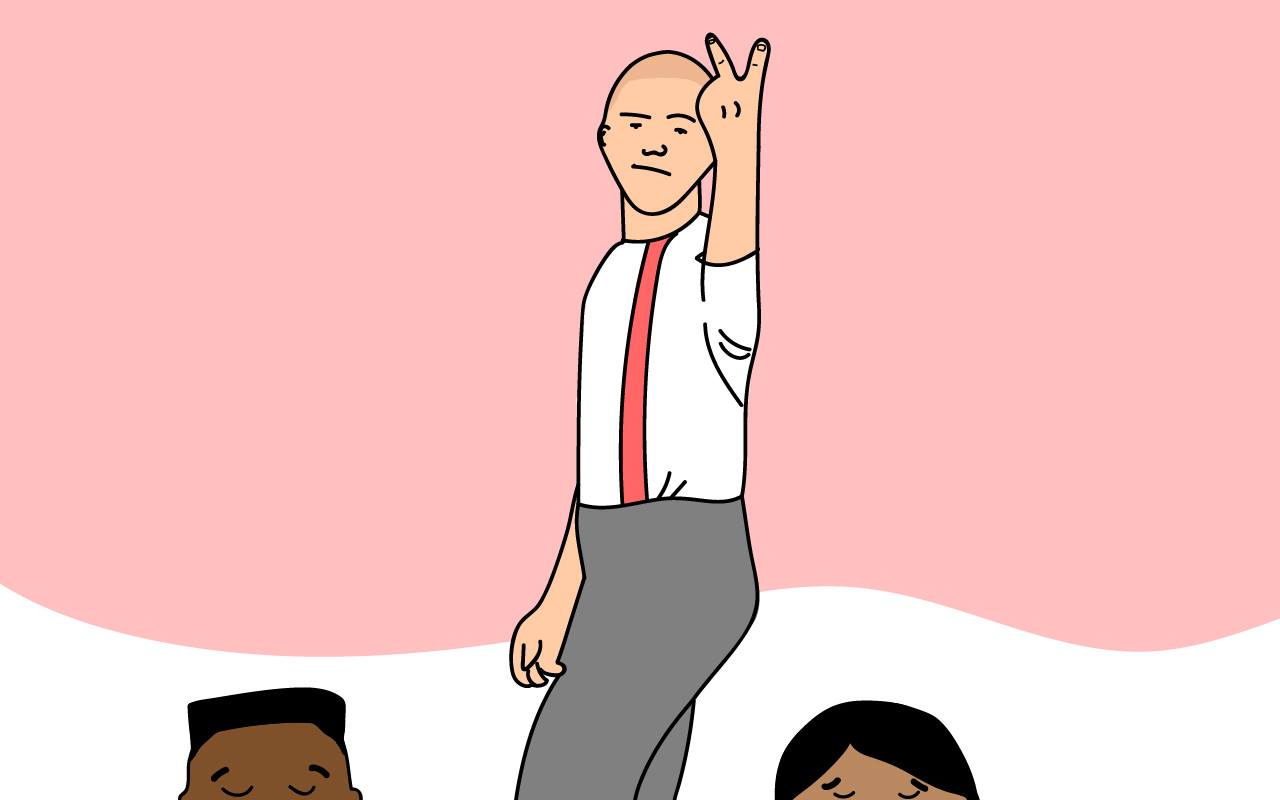
Trump is speaking. He’s devoted most of his speech so far to alienating immigrants, allowing for no nuance whatsoever, conflating (in the space of about 30 seconds) Muslims, “radical Islamic terrorists”, Mexicans, babies born to immigrant parents in the U.S., legal immigrants that are now American citizens, illegal immigrants working under the radar, and refugees.
Trump appears able to see only in black and white. To a rational adult, the above list may look like a diverse group of “types” of people that have nothing much to do with one another, but Trump’s rhetoric taps into a deeper truth about modern American (and increasingly, British) society: those people are, to some, all the same. They are “Others”, outsiders, the black to America’s virginal white.
What Trump says explicitly, Britain conveys indirectly. The political conservatives of Britain often cover their anti-immigrant feelings with caveats and prefaces like “We are not trying to keep out all immigrants, but…’”. Such speeches are the pinch of sugar that allow the subset of Britain that doesn’t already hate immigrants to start slowly swallowing anti-immigrant policies. They allow people to look the other way while access rights and freedoms get taken away, one by one. To name a few recent developments: government pledges to reduce the number of foreign NHS employees, mandatory “name and shame” requirements forcing companies to disclose the number of foreign employees they hire, new census developments requiring schoolchildren to report not only their country of citizenship but their country of birth (whether they are UK citizens or not).
A brief thought experiment might be in order, to envision for a moment what Britain might look like once May’s government is done with it.
Ayn Rand’s notorious Atlas Shrugged imagines a world in which Atlas, the Roman mythical figure who carries the world upon his shoulders, has shrugged (i.e. left the world to its own devices). In Rand’s epic (and epically criticised) novel, Atlas represents the wealthy capitalists in society, the “job creators”. The philosophy espoused in this book has been widely discredited, both academically and on moral grounds for its elitist and classist connotations. Rand argues that the world would self-destruct if it were abandoned by wealthy industrialists, so it isn’t hard to see how this thinking could be used to defend entrenched power dynamics of all kinds (including racial ones).
So for the sake of this thought experiment, what if we turned Ayn Rand’s thinking on its head? What if Atlas weren’t a group of wealthy capitalists, but rather another group of people? What if we imagined what Britain would be like if the immigrants of the country shrugged, if everyone in Britain that was born outside of it went on strike, right this minute?
Immigrants comprise 13.1% of Britain’s population.
According to data from Migration Watch UK, this is what net migration looks like as a fraction of the UK’s general population:
The ONS says that the EU immigrants in the UK workforce have risen by 700,000 since 2013, but they are dwarfed by the one million additional Britons who have joined the workforce in that time. Various bodies also remind us that the number of people in work does not equate to the number of jobs that are actually available. The workplace, at present, is not saturated. Immigrants may be taking jobs, but they are not usually taking jobs away from British people. Often they are filling gaps caused by skill shortages.
According to The Telegraph, this is what the landscape of benefit claimants looks like:
However, HMRC data shows that new British immigrants paid £2.54bn more in income tax and national insurance than they received in benefits from 2013-14.
What happens when you begin to delve into the actual statistics on immigrants in the UK is this: it gets boring. Simply because neither extreme of the rhetoric is true. Immigrants are not the only thing holding Britain up, and they are certainly not destroying it. I began writing this article expecting to conclude triumphantly that Britain would collapse without its immigrants. But the real truth is even better; if all the immigrants went on strike tomorrow, what would happen is nothing much. They tend to contribute more than they take, but on the whole, things largely balance out.
This points us to another truth: Rejecting immigrants will not bring back British jobs. Britain is not losing jobs to immigrants, it loses them to anti-industrial Thatcher-era reforms, and to cheap labour and deregulated markets overseas. And the “cheap labourers” overseas are not exactly winners in this scenario either. They are suffering more in employment than most Britons will ever suffer out of employment. Britain also loses jobs to unavoidable developments like technological advancement.
The problem is not workers, immigrants or otherwise, as they are merely striving to do their best in a game whose rules they didn’t set.
If people really believe that immigrants are claiming benefits, and thus have little money of their own, then why would we want to go after them, instead of the people with enormous sums of unearned money sitting in offshore bank accounts, collecting dust?
Have the wealthy just pulled off the trick of the century? They (or someone, at any rate) have convinced people of the rationally impossible, that the disenfranchisement of citizens isn’t the fault of people with money in a world where money equals power. It somehow isn’t even the fault of people with literal legal and political power. Somehow, it is the fault of a small group of people with little money and even less social capital, that make up a small percentage of the population. Immigrants are an ideal enemy to have; they are vulnerable, and scapegoating them makes us feel empowered. We can do something about vulnerable people. If they are the enemy, then we might be okay.
But maybe our real fear is that the “enemy” is not vulnerable. The real enemy, perhaps, has almost all the world’s wealth and takes a little bit more every day. If we were to really think, we would probably have to face the terrifying notion that the person putting us at risk is not a Polish immigrant making £20,000 per year, who has the same concerns about life that we do. The people putting us at risk might, in a more likely scenario, be a privileged minority of people with more money than every British immigrant combined (sitting somewhere in offshore bank account and dispersed in property, not contributing to the British economy, as Randians might argue). It’s also more than likely that, these people didn’t earn their wealth, but rather inherited it..
Do we blame immigrants for our problems because we are frightened that our real enemy is too powerful for us to challenge?
Many commentators wonder what the landscape of employment will look like in future years. We can see technology replacing blue-collar jobs now and this trend may continue. We may well reach a stage in society where high employment rates are not a realistic possibility. this is why many world-class economists have argued for a universal basic income. But how will a working and middle class, accustomed to fighting people worse off than themselves, manage to make this (or any other solutions) a reality? We should be focusing on long-term issues like these with the time and resources that are instead being devoted to waging arbitrary wars on immigrants.
We need to start asking tough question about how half the world’s wealth has ended up in the hands of 62 people, and what this means for working people. The real enemy may in fact be too powerful for us to challenge. But we certainly aren’t doing ourselves any favours by ignoring them.
Further links:
On the new census requirements
On the upsurge of open xenophobia post-Brexit
Anti-immigrant sentiments in Britain during and after Brexit

